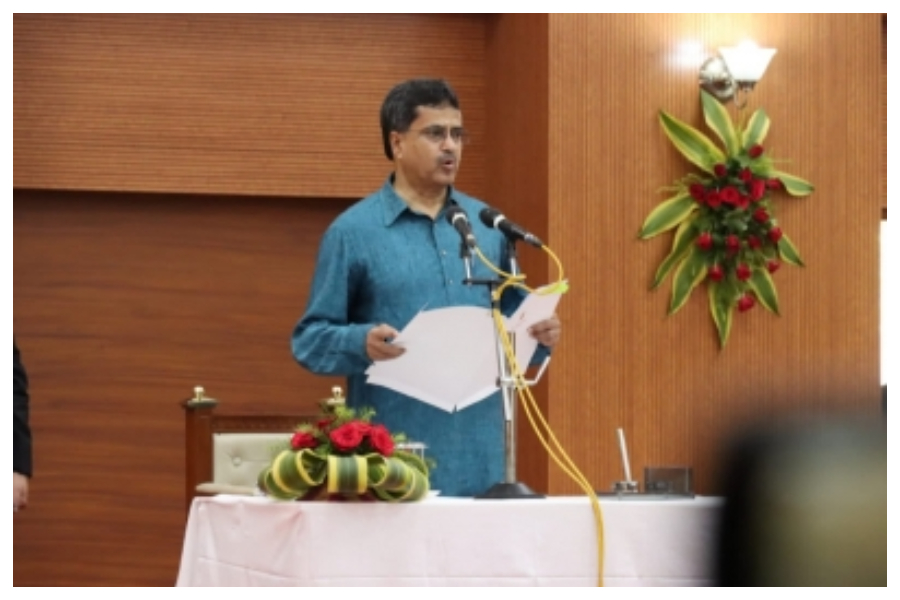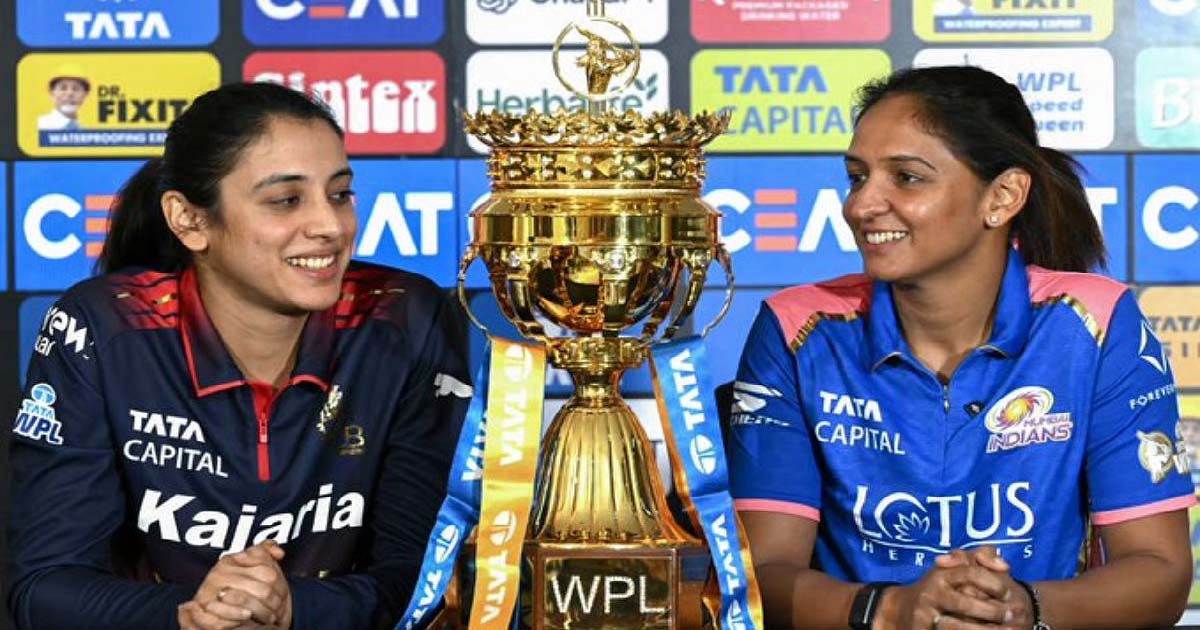Politics
BJP’s replacement of Tripura CM with eye on 2023 polls

After Uttarakhand, Gujarat and Karnataka, the BJP has changed its Chief Minister in Tripura, months ahead of the Assembly polls in the Northeastern state, with a view on electoral calculations and gains.
The election to the 60-member Tripura Assembly is due in January-February 2023.
Though the script was written in Delhi, the real drama was played in Agartala to overcome the anti-incumbency factor at least eight to nine months ahead of the crucial Assembly polls, which is expected to be multi-cornered between the CPI-M, the Congress, new entrant Trinamool Congress (TMC), besides the ruling BJP.
A year after the BJP-Indigenous People’s Front of Tripura (IPFT) government assumed charge on March 9, 2018, ending the 25-year rule of the Left Front, Tripura has witnessed waves of revolt by dissident BJP MLAs led by Sudip Roy Barman against Biplab Kumar Deb, who also subsequently announced to obtain a people’s mandate by calling a public meeting.
His move was later cancelled following the intervention of the Central BJP leadership.
Amid open resentment by a section of the ruling BJP MLAs and leaders in Tripura, the Cabinet expansion took place on August 31, 2021, by inducting three ministers even as the dissident MLAs and BJP leaders boycotted that swearing-in-ceremony.
The dissidence in May 2019 was sparked off after the State Health and Family Welfare and the Information Technology Minister Roy Barman was sacked following differences with Deb.
Sudip Roy Barman, six other MLAs and many leaders had quit the Congress in 2016 to join the TMC and next year (2017) they joined the BJP and helped it win the Assembly elections in 2018.
However, then, Sudip Roy Barman and Ashis Kumar Saha, who resigned from the state Assembly and the BJP on February 7, 2022, rejoined the Congress in New Delhi on February 8.
Earlier, BJP MLA Ashish Das, after openly criticising the saffron party and its leadership, including Deb, joined the TMC on October 31, 2021, following which he was disqualified from the state Assembly.
Following the tumult, several senior Central BJP leaders on a number of occasions visited Tripura to quell the internal dispute and plug the shortcomings, both in the government and the party organisation.
Political Commentator and Editor of Tripura’s leading English daily “North East Colors”, Sanjib Deb said that it is clear and loud that though removed from the post of Chief Minister, Biplab Kumar Deb is not going to be dumped, rather the steering is going to remain with him.
“After submitting the resignation, Deb told the media that he is going to remain with the party organisation. What is most important is that in the meeting of the BJP Legislature Party on Saturday, Biplab Kumar Deb had proposed the name of Manik Saha while the Deputy Chief Minister Jishnu Dev Varma seconded it,” he said.
He said when Biplab Kumar Deb became the Chief Minister, there were talks in Tripura that the government is the BJP’s, Council of Ministers are from Congress (as most Ministers are from the party) and administration is of the CPI-M (as the officials were recruited during the 25 years of Left Front government).
Political analyst and writer Sekhar Datta said the change of Chief Ministership in Tripura was long overdue.
“BJP has taken the decision to avoid the anti-incumbency issues eight to nine months before the crucial Assembly elections. The BJP retained power in Assam (2021) and Manipur (2022) in the Assembly polls. So retaining power in Tripura in the 2023 polls is a vital issue for the saffron party to keep its aim ‘Congress Mukt Northeast region’.”
Local print and electronic media mostly welcomed the BJP’s decision and criticised Deb’s style of functioning.
Editor of Tripura’s leading vernacular daily ‘Syandan Patrika’, Subal Kumar Dey said he had written in April 2020 about “Deb’s autocratic governance”.
“Only due to Deb’s dictatorial style of work and undemocratic mindset, three BJP MLAs were forced to leave the party weakening the organisation and the government,” Dey.
BJP sources said Biplab Kumar Deb will be Tripura BJP President as the incumbent Manik Saha had to quit the post on becoming the Chief Minister.
RSS loyalist Deb became the state BJP President in January 2016, a year after he returned to the state after spending many years outside it.
National News
Navi Mumbai Police Impose Traffic Restrictions Near D Y Patil Stadium During WPL 2026

Navi Mumbai: Navi Mumbai police will impose traffic restrictions on the service road near Dr. D. Y. Patil Stadium in Nerul from January 9 to January 17, 2026, to ensure security and smooth movement during the BCCI Women’s Premier League (WPL) T20 cricket matches.
According to the traffic control notification issued by the Turbhe Traffic Division, all types of vehicles will be barred from plying and parking on the service road between Bhimashankar Society and the L.P. Rickshaw Stand from 7 am to 11 pm on match days, as the route has been earmarked for the movement of players and dignitaries.
Deputy Commissioner of Police (Traffic) Tirupati Kakade said the restrictions are being enforced under provisions of the Motor Vehicles Act to prevent congestion and maintain law and order in the stadium vicinity during the matches.
Commuters have been advised to use the Sion–Panvel Highway, specifically the Uran Phata to L.P. Bridge stretch, as an alternative route to reach their destinations.
The restrictions will not apply to vehicles carrying essential commodities, police vehicles, fire brigade units, ambulances, government vehicles, other emergency services, and vehicles holding official passes issued by the WPL/IPL management.
Mumbai Press Exclusive News
Providing basic amenities to Mumbai is our priority, Samajwadi Party’s election manifesto released, Abu Asim Azmi claims to solve urban problems

Mumbai: The Samajwadi Party released its election manifesto for the Mumbai Municipal Corporation (BMC) elections at a press conference today. The party’s Maharashtra president Abu Asim Azmi presented this manifesto keeping in mind the basic problems of the people of Mumbai. Abu Asim Azmi has also promised free water supply along with basic amenities in the election manifesto. It has been promised to provide 700 liters of clean and free drinking water to every family in Mumbai daily. To raise the standard of education, it has been decided to improve the quality of municipal schools and provide scholarships and free facilities to needy students for higher education. It has also been declared necessary to arrange modern medical facilities, neighborhood clinics and free medicines in every ward of Mumbai in the medical department and health department. In addition, efforts have been made for equal employment opportunities. Creating new employment opportunities for the youth and making special projects to eliminate unemployment are also part of the election manifesto. Providing better facilities for the residents of slums, pucca houses and pothole-free roads in the city, bringing transparency in the functioning of BMC and eliminating corruption are also the main components of the election manifesto. Addressing the press conference, Abu Asim Azmi said that the Samajwadi Party is committed to the development of Mumbai and to providing its people with their fundamental rights. Our aim is not just to make promises but to make Mumbai a better and prosperous city.
National News
BMC Elections 2026: Mumbai Candidates Declare Massive Surge In Assets, Multi-Crore Wealth Revealed In Affidavits

Mumbai, Jan 08: Details of assets, profession and criminal records of selected candidates contesting the upcoming civic elections in Mumbai, as declared in their affidavits, are as follows:
Shaila Dilip Lande – Shiv Sena (Shinde), Ward 163 (Saki Naka)
Profession: Business
Total movable and immovable assets as of 2025: ₹8,18,76,134
Total movable and immovable assets as of 2017: ₹14,27,651
Criminal cases: 0
Found guilty: 0
Kamalakar Naik – Independent, Ward 169 (Kurla Nehru Nagar)
Profession: Business
Total movable and immovable assets as of 2025: ₹11,83,36,519
Total movable and immovable assets as of 2017: ₹1,92,76,226
Criminal cases: 2
Found guilty: 0
Dhanajay Pisal – Nationalist Congress Party (Ajit Pawar), Ward 111 (Kanjur Village)
Profession: Service
Total movable and immovable assets as of 2025: ₹21,82,57,202
Total movable and immovable assets as of 2019: ₹8,55,21,925
Criminal cases: 0
Found guilty: 0
Sonam Manoj Jamsutkar – Shiv Sena (UBT), Ward 210 (Mumbai Central)
Profession: Business
Total movable and immovable assets as of 2025: ₹14,38,84,259
Total movable and immovable assets as of 2017: ₹7,08,67,928
Criminal cases: 0
Found guilty: 0
Geeta Gawli – Akhil Bhartiya Sena, Ward 212 (Mahalaxmi–Umar Park)
Profession: Business
Total movable and immovable assets as of 2025: ₹7,26,92,393
Total movable and immovable assets as of 2017: ₹3,45,32,902
Criminal cases: 0
Found guilty: 0
Sana Haji Halim Khan – Shiv Sena (UBT), Ward 96 (Bandra East)
Profession: Not mentioned
Total movable and immovable assets as of 2025: ₹9,46,03,435
Total movable and immovable assets as of 2017: Not contested
Criminal cases: 0
Found guilty: 0
Nehal Shah – Independent, Ward 177 (Matunga)
Profession: Business
Total movable and immovable assets as of 2025: ₹7,04,11,095
Total movable and immovable assets as of 2017: ₹1,69,77,255
Criminal cases: 0
Found guilty: 0
Rajul Sameer Desai – BJP, Ward 56 (Goregaon)
Profession: Business
Total movable and immovable assets as of 2025: ₹24,28,81,925
Total movable and immovable assets as of 2017: ₹1,79,69,000
Criminal cases: 0
Found guilty: 0
Prabhakar Shinde – BJP, Ward 106 (Mulund)
Profession: Business
Total movable and immovable assets as of 2025: ₹17,63,01,181
Total movable and immovable assets as of 2017: ₹57,46,971
Criminal cases: 0
Found guilty: 0
Neil Somaiya – BJP, Ward 107 (Mulund)
Profession: Business
Total movable and immovable assets as of 2025: ₹9,89,21,872
Total movable and immovable assets as of 2017: ₹1,99,37,809
Criminal cases: 0
Found guilty: 0
-

 Crime3 years ago
Crime3 years agoClass 10 student jumps to death in Jaipur
-

 Maharashtra1 year ago
Maharashtra1 year agoMumbai Local Train Update: Central Railway’s New Timetable Comes Into Effect; Check Full List Of Revised Timings & Stations
-

 Maharashtra1 year ago
Maharashtra1 year agoMumbai To Go Toll-Free Tonight! Maharashtra Govt Announces Complete Toll Waiver For Light Motor Vehicles At All 5 Entry Points Of City
-

 Maharashtra1 year ago
Maharashtra1 year agoFalse photo of Imtiaz Jaleel’s rally, exposing the fooling conspiracy
-

 National News1 year ago
National News1 year agoMinistry of Railways rolls out Special Drive 4.0 with focus on digitisation, cleanliness, inclusiveness and grievance redressal
-

 Maharashtra1 year ago
Maharashtra1 year agoMaharashtra Elections 2024: Mumbai Metro & BEST Services Extended Till Midnight On Voting Day
-

 National News1 year ago
National News1 year agoJ&K: 4 Jawans Killed, 28 Injured After Bus Carrying BSF Personnel For Poll Duty Falls Into Gorge In Budgam; Terrifying Visuals Surface
-

 Crime1 year ago
Crime1 year agoBaba Siddique Murder: Mumbai Police Unable To Get Lawrence Bishnoi Custody Due To Home Ministry Order, Says Report






















